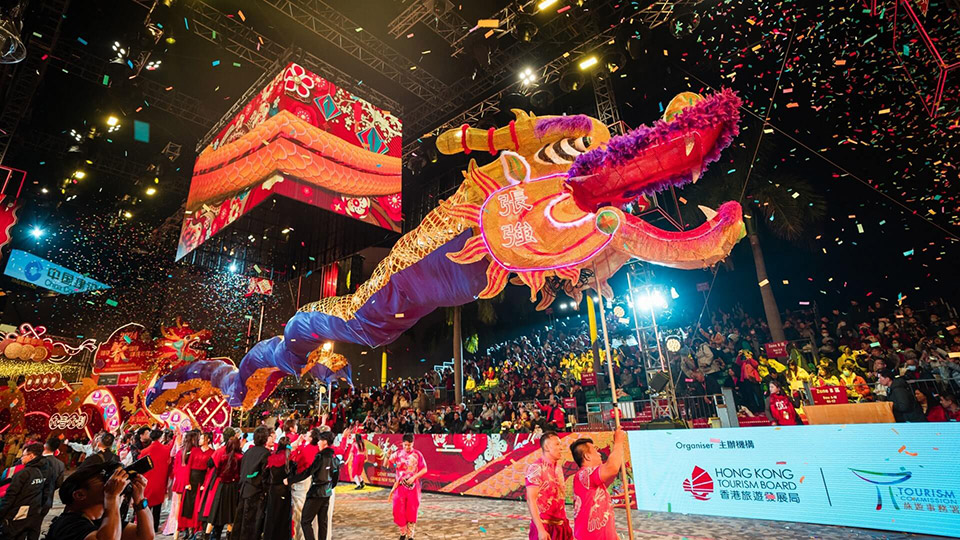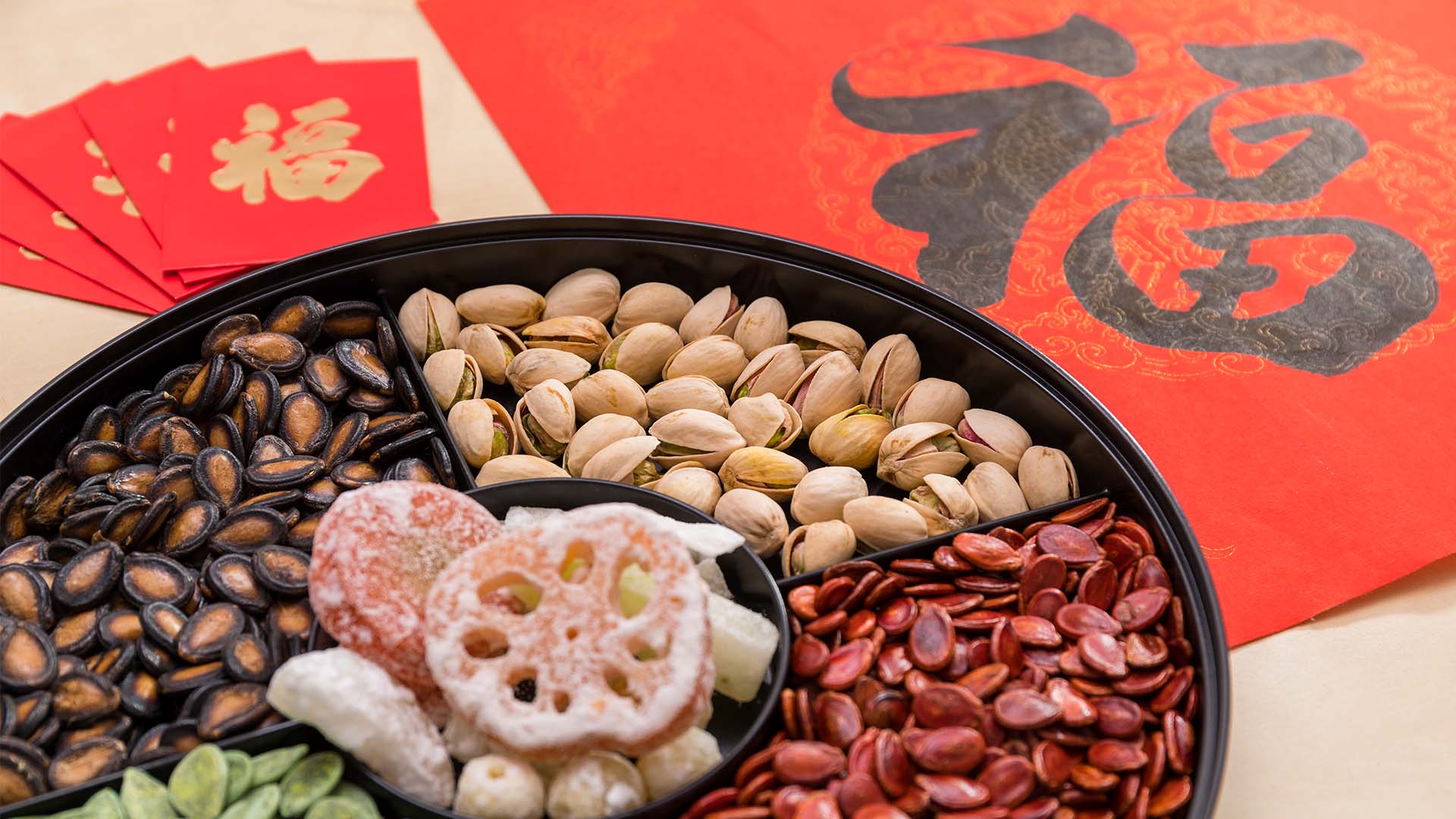
Chinese New Year is one of Hong Kong’s biggest celebrations. Whether you’re spending the holiday at home with family and other loved ones or celebrating the festival’s traditions around the city, there are numerous Chinese New Year customs that you should familiarise yourself with for a new, prosperous year ahead.
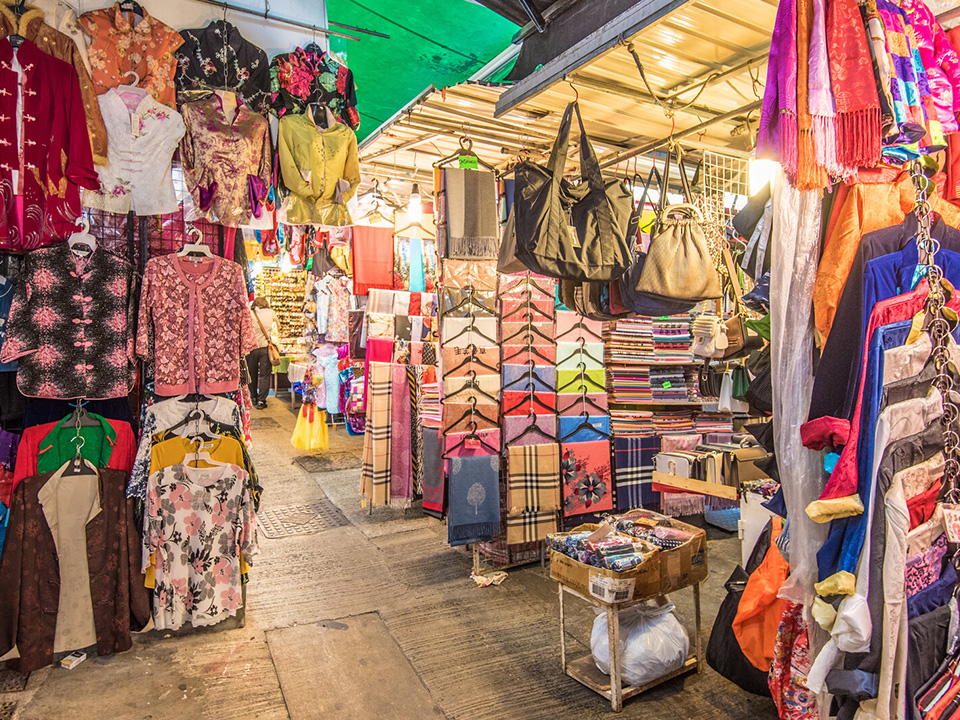
New clothes for the New Year
Do away with the old and wear new clothes for Chinese New Year as it symbolises a fresh beginning to the year. And since the colour red represents luck and positivity, many choose to wear red clothes, and sometimes even underwear, to help usher in an auspicious year.
Spring clean before the New Year
Cleaning the home before Chinese New Year signifies a fresh start, welcoming the new year with a clean and harmonious environment. It is believed that by making the house spotless, you are removing any lingering bad luck or negative energy from the previous year, making space for good fortune and prosperity to enter your home in the coming year.
Prepare a chuen hap
Having a chuen hap, a Chinese New Year snack box, at home is a must for entertaining guests during Chinese New Year. Symbolising ‘togetherness’ and ‘perfection’, a chuen hap typically has an odd number of compartments filled with treats that have auspicious meanings. There are eight types of traditional sweets you will often find in a chuen hap, such as candied lotus seed, which symbolises the bearing of children; winter melon candy, which represents having a good year from start to finish; as well as savoury and fried snacks like melon seeds, deep-fried sesame balls, and yau gok (deep-fried dumplings) that are all associated with prosperity.
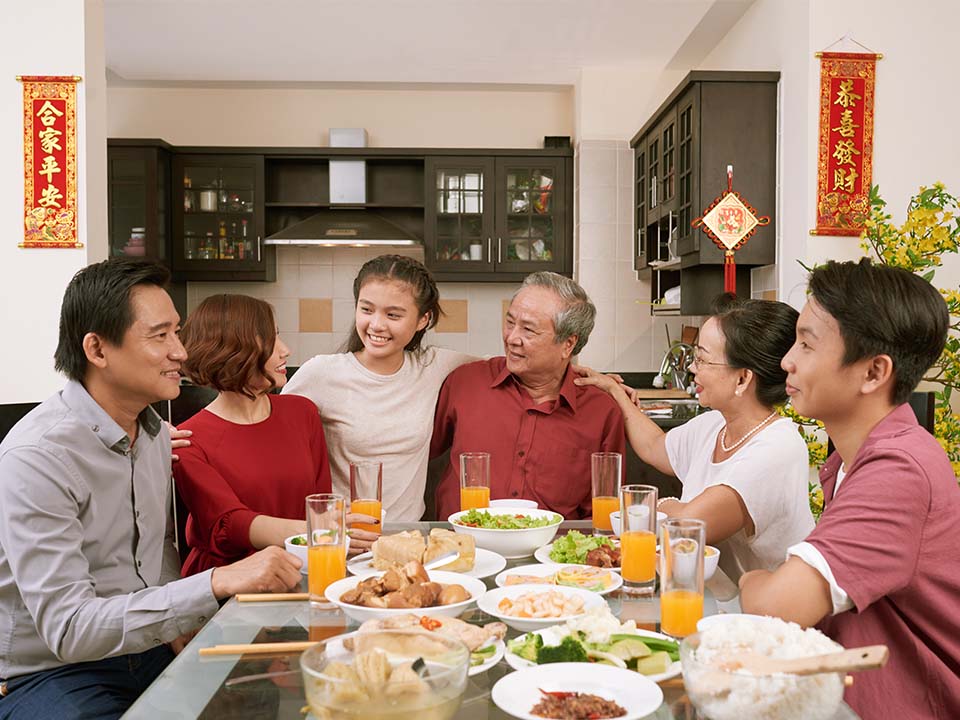
Enjoy a festive feast
Traditionally, families gather on the eve of Chinese New Year for a sumptuous meal and enjoy festive dishes such as poon choi, a traditional Cantonese casserole filled with layers of ingredients that symbolise luck and fortune, as well as foods associated with wealth such as fat choy (black moss) and dried oysters.
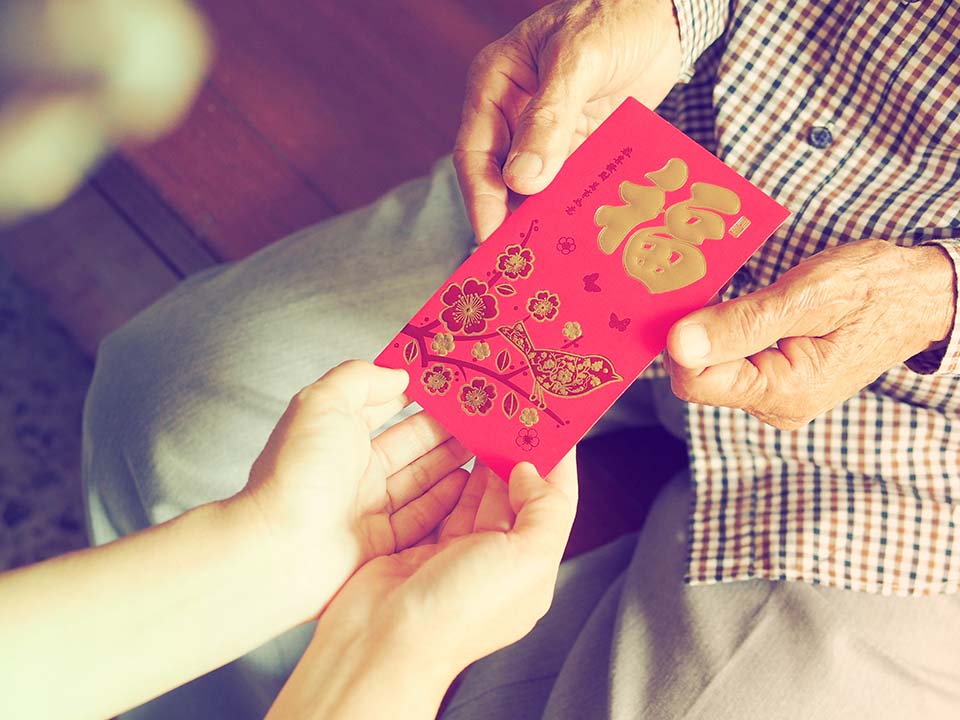
Receive lai see
It is customary for elders, bosses, and those who are married to give out lai see, aka red packets, during Chinese New Year, so be sure to brush up on your Chinese New Year greetings and wish them a prosperous year to come. Red packets filled with lucky money would also be given to children to place under their pillows in order to ward off evil spirits and wish for a healthy new year.
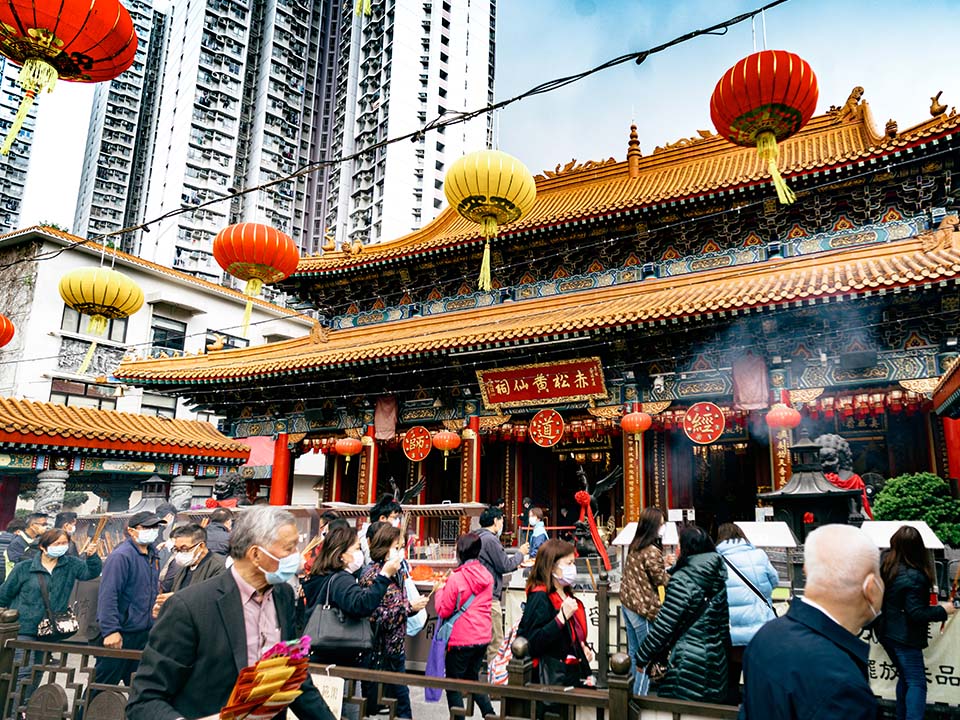
Burn incense sticks at Wong Tai Sin temple
Take part in one of the city’s biggest Chinese New Year traditions at Sik Sik Yuen Wong Tai Sin Temple. It is believed that those who enter the temple first and make an offering to the gods by burning the inaugural incense sticks will receive the biggest of blessings. Thus, crowds of worshippers gather at the temple in the early morning of Chinese New Year’s Day to pray for a new fortuitous year.
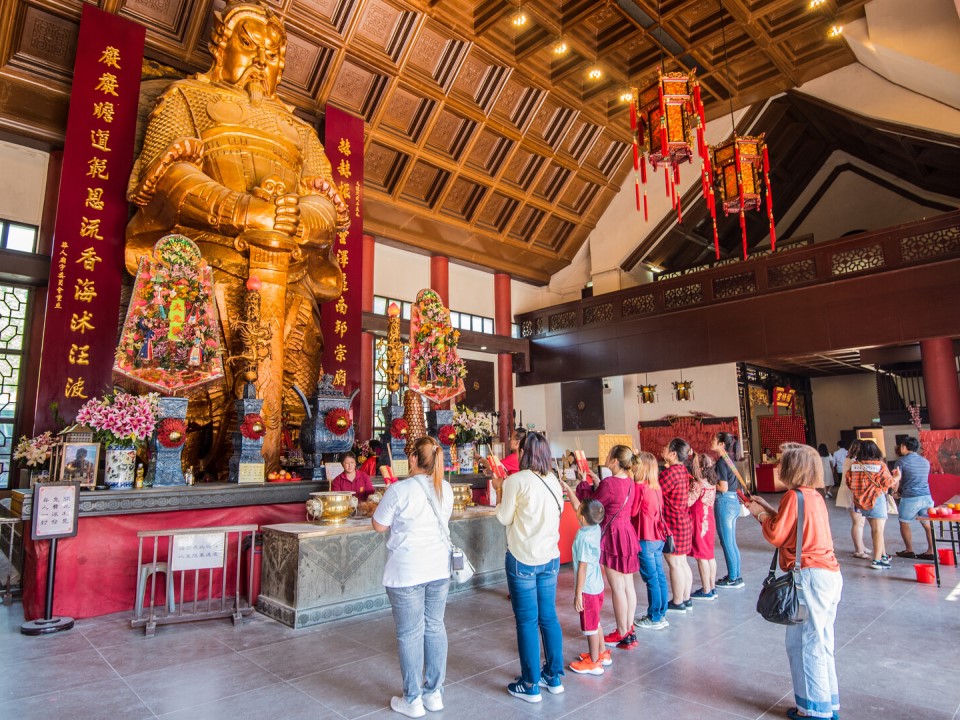
Visit Che Kung Temple
Apart from Wong Tai Sin temple, many Hong Kong locals also visit Che Kung Temple in Sha Tin on the second and third day of Chinese New Year to worship, burn incense, draw fortune sticks, and turn the copper windmill (in a clockwise direction) to attract good luck. Don’t forget to also pick up a lucky pinwheel to carry home good fortune!

Make a wish at the Lam Tsuen Well-Wishing Festival
An age-old tradition of Chinese New Year in Hong Kong, the Lam Tsuen Well-Wishing Festival attracts a sea of people every year to write their wishes on a placard, tie it to a mandarin, and throw it onto the wishing tree for a blessed new year.
Information in this article is subject to change without advance notice. Please contact the relevant product or service providers for enquiries.
The Hong Kong Tourism Board disclaims any liability as to the quality or fitness for purpose of third party products and services; and makes no representation or warranty as to the accuracy, adequacy or reliability of any information contained herein.




